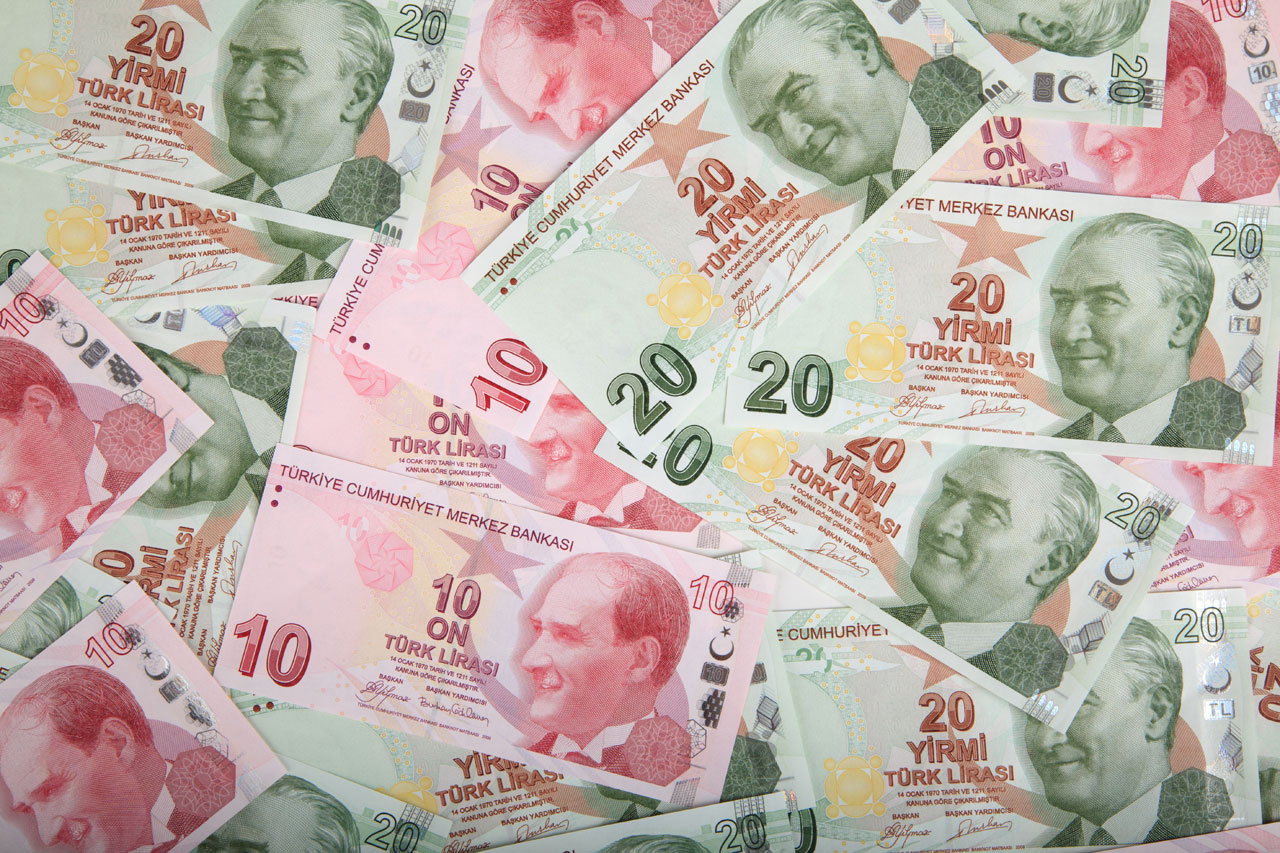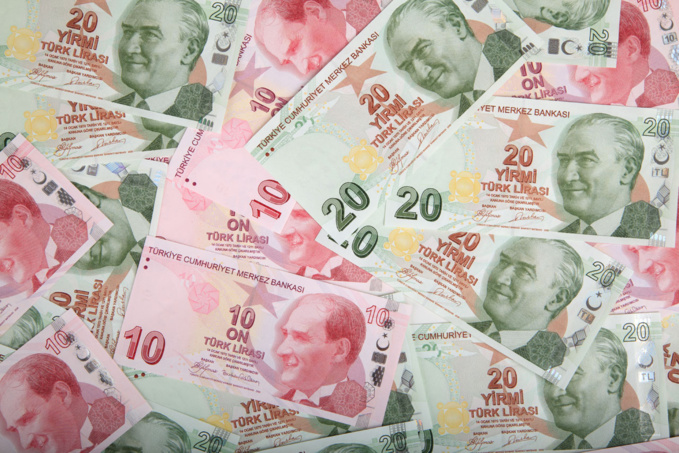The National Bank of Turkey has already made an attempt to intervene in depreciation of the Turkish lira against the dollar. The depreciation continued on Monday after a week of devaluation, during which the Turkish currency lost about 30% of the value. All statements of the regulator concerned only the situation with current liquidity: the national bank reduced the reservation rates for Turkish banks by 2.5 percentage points in lira, relaxed a number of technical rates and requirements for its operations with banks, expanded refinancing opportunities, including repo market, and in general, promised de facto an unlimited amount of liquidity to the banking system. Changes in regulation on July 13 are estimated at € 11 billion of additional liquidity in the banking system. Yet, nothing helped to stop the fall: it devalued from 6.89 TL/ $ to 7.24 TL/$ on Monday.
Yesterday's events with the lira resulted from statement of Berat Albayrak, the new Minister of Finance of Turkey, to the newspaper Hurriyet. He told about future anti-crisis strategy of the government. The personal sanctions against Heads of the Ministry of Internal Affairs and the Ministry of Justice of Turkey, introduced last week by US President Donald Trump, as well as duties on exports of Turkish steel and aluminum to the US (for about $ 1.8 billion a year), cannot greatly change the current situation in the Turkish economy per se. The currency crisis in the country is unquestionably endogenous. It occurred against the background of a rather high growth in Turkey's GDP - the forecasts of the EBRD and the EU suggest it will be at 4-4.5% in 2018 after growing 7.2% in 2017. On the eve of the presidential elections in Turkey, most experts talked about overheating of the country's economy and risks of a hard landing. The successes of Turkey in 2017 were largely induced by pre-election expenses and stimulation of GDP growth by the monetary policy of the National Bank of Turkey: real rates in the country remains at the level of 2-3% per annum.
In this light, the actions of the Ministry of Finance and the National Bank of Turkey look like an attempt to extend the upward phase of the credit cycle. Now, analysts are discussing the change in the procedure for appointing members of the monetary policy committee of the National Bank of Turkey, which limits independence of the issuing bank. Recall, President Erdogan is a principal supporter of low interest rates in the Turkish economy. The National Bank of Turkey, despite what is happening, maintains a key stake at the level of 17.75% (it rose on June 7, before the presidential election). With the inflation targeting of the National Bank of Turkey at 5% per annum, the current inflation in Turkey was lower than this level in April 2011. Yesterday, the Federal Chancellor Angela Merkel said that the need to ensure independence of the National Bank of Turkey is an obvious decision. International markets treat Turkish problems very serious: they caused the weakening of the yuan and a number of other currencies of developing countries, the cost of Italy's national debt and stock markets around the world from Tokyo to New York, although so far limited.
Note that the depth of devaluation of the lira may be high: Turkey is an importer of raw materials. The most significant threat to its economy now is the credit crisis, primarily in the construction sector, and the cheap lira will not solve this problem. The logical decision for the National Bank of Turkey would be to raise the key rate and actively fight inflation, but this would probably mean for President Erdogan capitulation in the "economic war" with the United States. By itself, the possibility of waging an "economic war" in Turkey, heavily dependent on foreign investment, is small. Recall, in addition to the balance of payments deficit (as of July - about 6% of GDP), Turkey also has a budget deficit in 2018 at 3% of GDP, and the outflow was recorded for the capital account for the first time in the summer of 2018.
Meanwhile, Turkey's public debt (60% of GDP) is rather moderate, and markets do not expect defaults on it, unlike Turkish companies: the chances of an increase in the number of bankruptcies and rising unemployment in Turkey (now around 8-9%) in 2019 have grown significantly.
source: reuters.com
Yesterday's events with the lira resulted from statement of Berat Albayrak, the new Minister of Finance of Turkey, to the newspaper Hurriyet. He told about future anti-crisis strategy of the government. The personal sanctions against Heads of the Ministry of Internal Affairs and the Ministry of Justice of Turkey, introduced last week by US President Donald Trump, as well as duties on exports of Turkish steel and aluminum to the US (for about $ 1.8 billion a year), cannot greatly change the current situation in the Turkish economy per se. The currency crisis in the country is unquestionably endogenous. It occurred against the background of a rather high growth in Turkey's GDP - the forecasts of the EBRD and the EU suggest it will be at 4-4.5% in 2018 after growing 7.2% in 2017. On the eve of the presidential elections in Turkey, most experts talked about overheating of the country's economy and risks of a hard landing. The successes of Turkey in 2017 were largely induced by pre-election expenses and stimulation of GDP growth by the monetary policy of the National Bank of Turkey: real rates in the country remains at the level of 2-3% per annum.
In this light, the actions of the Ministry of Finance and the National Bank of Turkey look like an attempt to extend the upward phase of the credit cycle. Now, analysts are discussing the change in the procedure for appointing members of the monetary policy committee of the National Bank of Turkey, which limits independence of the issuing bank. Recall, President Erdogan is a principal supporter of low interest rates in the Turkish economy. The National Bank of Turkey, despite what is happening, maintains a key stake at the level of 17.75% (it rose on June 7, before the presidential election). With the inflation targeting of the National Bank of Turkey at 5% per annum, the current inflation in Turkey was lower than this level in April 2011. Yesterday, the Federal Chancellor Angela Merkel said that the need to ensure independence of the National Bank of Turkey is an obvious decision. International markets treat Turkish problems very serious: they caused the weakening of the yuan and a number of other currencies of developing countries, the cost of Italy's national debt and stock markets around the world from Tokyo to New York, although so far limited.
Note that the depth of devaluation of the lira may be high: Turkey is an importer of raw materials. The most significant threat to its economy now is the credit crisis, primarily in the construction sector, and the cheap lira will not solve this problem. The logical decision for the National Bank of Turkey would be to raise the key rate and actively fight inflation, but this would probably mean for President Erdogan capitulation in the "economic war" with the United States. By itself, the possibility of waging an "economic war" in Turkey, heavily dependent on foreign investment, is small. Recall, in addition to the balance of payments deficit (as of July - about 6% of GDP), Turkey also has a budget deficit in 2018 at 3% of GDP, and the outflow was recorded for the capital account for the first time in the summer of 2018.
Meanwhile, Turkey's public debt (60% of GDP) is rather moderate, and markets do not expect defaults on it, unlike Turkish companies: the chances of an increase in the number of bankruptcies and rising unemployment in Turkey (now around 8-9%) in 2019 have grown significantly.
source: reuters.com



















